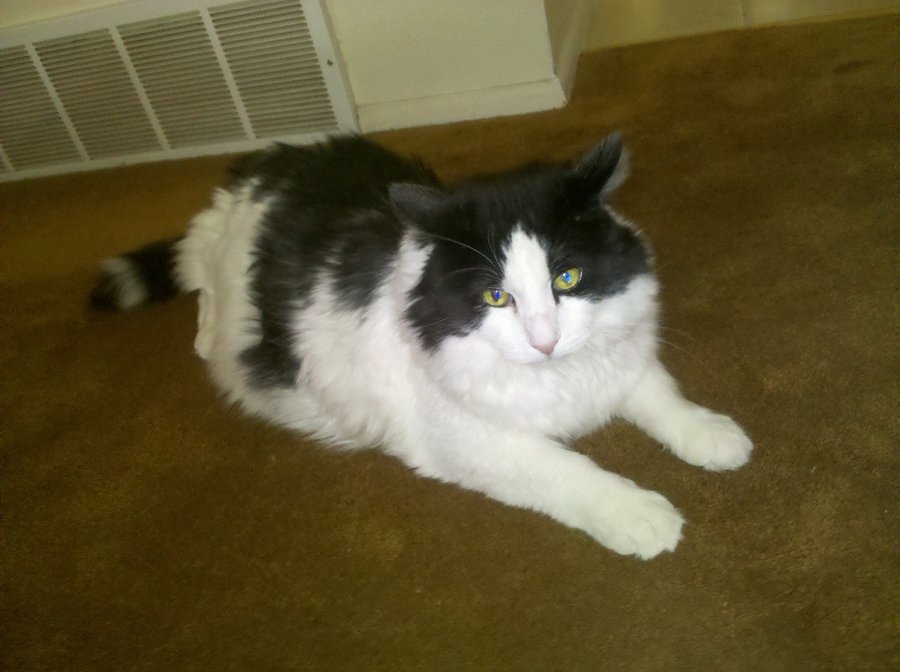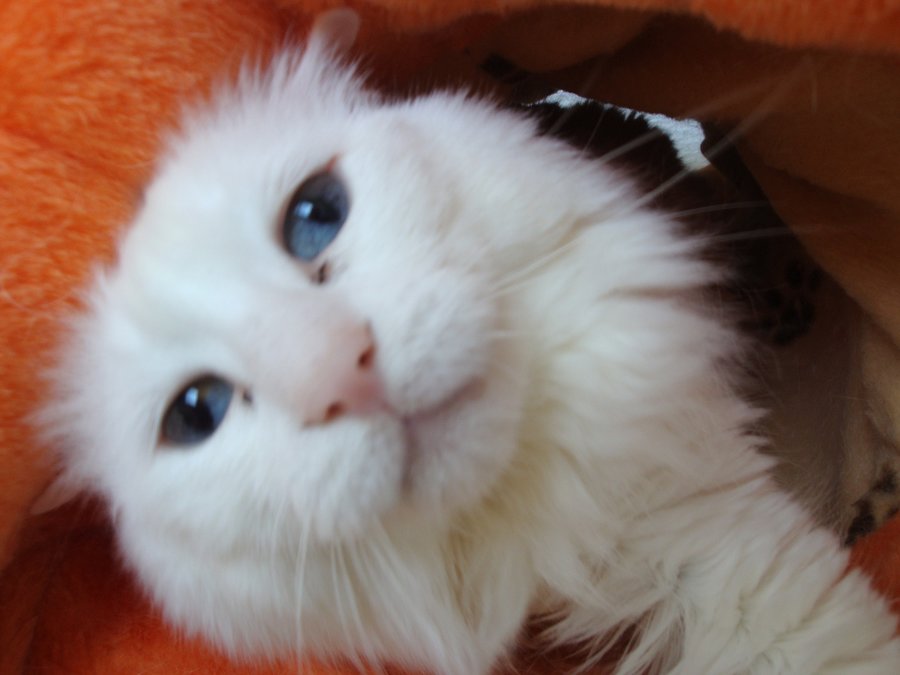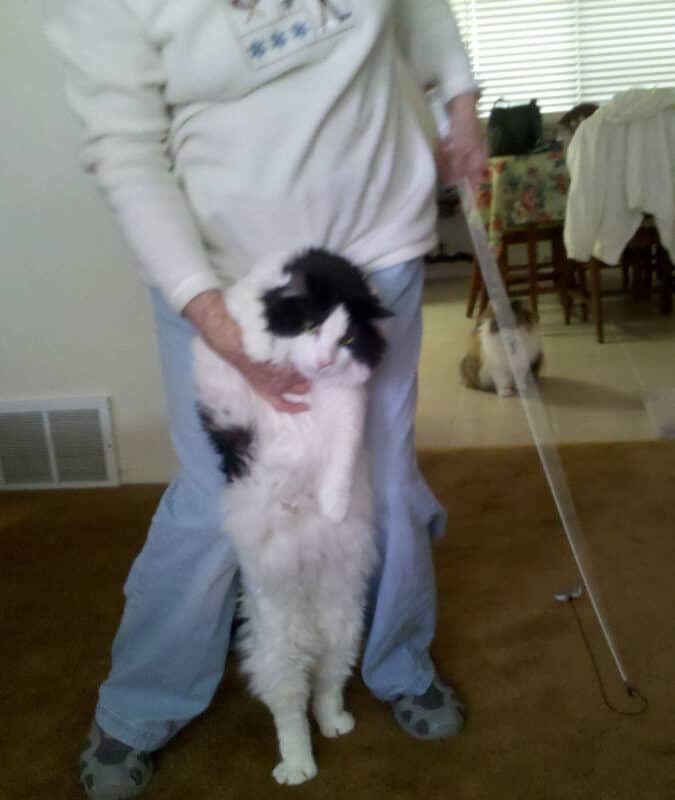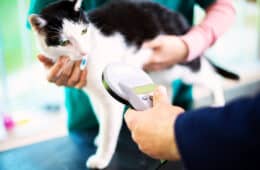Deafness in cats: a condition often overlooked but remarkably common. From age-related hearing loss to genetic predispositions, the causes are many and varied. Yet, for those who have a deaf cat, understanding and adjusting to this unique situation becomes a significant part of their daily lives.
In the forthcoming article, we will unravel the mysteries of a deaf cat's world. From discovering how a cat might become deaf to learning how to live with and care for a deaf cat, this exploration promises to be both informative and touching.
Understanding Deafness in Cats
Deafness in cats isn't a simple condition; it's a multifaceted issue with various causes and manifestations. A cat's hearing loss might be temporary or permanent. It may affect one ear or both, and it can be complete or partial.
The reasons behind deafness are numerous. Age can gradually wear down a cat's hearing ability, just as it can in people. Genetic defects may be present from birth, predisposing certain cats to hearing loss.
Infections and mites can damage the ear, leading to temporary or permanent issues. Accidental injuries to the ear may have lasting effects on hearing as well.
Sometimes, even certain medications like antibiotics or diuretics can contribute to hearing loss. These drugs might cause side effects that interfere with the ear's functions or the brain's ability to interpret sound.
Whether originating from the ear itself or from deeper neurological problems, deafness in cats is a complex issue that needs understanding and care.
As we get further into this subject, we'll uncover how to detect and manage this often overlooked condition, allowing our four-legged friends to live happily and comfortably.

The Impact of Age on Hearing
As cats get older, they experience hearing loss to some degree, as people do. You can see signs of this when your cat doesn’t react to loud noises nearby or when walking, he may have balance problems.
Have your veterinarian make sure the problem is only due to age.
Deafness and Genetic Factors
Blue-eyed white cats are particularly prone to deafness from birth. The cat does not have to be pure white to have this problem. Max, a green-eyed tuxedo cat, was adopted from a shelter by Mary Seaton to be a companion for her chatty calico, Mrs. Murphy. He seemed to be a calm, quiet cat and a good match for the family.
Mrs. Murphy was quite disappointed—Max didn’t jump up and run when she pounced on him as he napped in the center of the floor. He didn’t respond to her invitations to play.
When Max didn’t react to the sound of the garbage disposal, Mary knew he had a problem. Off to the vet, they went where her guess was confirmed. Max was deaf, probably from birth, due to a genetic defect common in white cats. Max is about 70 percent white.
SIGN UP FOR THECATSITE'S EMAIL UPDATES >

Paulette adopted a white cat with one blue eye and one yellow eye at the shelter. Princess surprised her by giving birth to four kittens later that week. One was black, three white. The white kittens have problems with balance and coordination—in addition, Pixie is deaf.
“She is surprised quite easily if she doesn’t see or feel me come near her. Now I make sure to walk hard or knock on the floor or something close to her so she’s aware of me, especially when she’s asleep,” said Paulette. “She’s still quite the kitten in many ways. Not hearing doesn’t seem to be a problem for her.”
The Perils of Ear Infections
Mites damage the eardrum, resulting in inflammation and infection. If your cat’s ears are tender to the touch (that is, he will not let you look in his ears without a threat of scratches), or you see redness and swelling or a black sticky substance—those are signs to make an appointment with the vet.
Don’t assume ear mites—there are several causes with similar symptoms. Your veterinarian can clean the ears, apply medicine and teach you to do the same.
Repeated or untreated infections can lead to hearing loss so don’t delay a trip to verify the problem and get the right medication.
Sometimes food allergies bring about ear infections. If your cat has repeated ear problems, try switching to grain-free food.

Adapting to Life with a Deaf Cat
Seaton doesn’t open a door without knowing where her two cats are. “They are inside cats but they’re quick,” she said. “I use the door to the garage or a screened room so all exits are through two doors.” A sign is posted on the fridge in case there’s an emergency when Mary isn’t home.
If your cat is asleep on the floor, stomp your foot so he feels the vibration and isn’t startled awake. If he’s on the bed, jiggle the edge to wake him.
He may be somewhat disoriented at times so make sure you know where he is when people are coming in and out of the house. Let him know when you are entering or leaving a room. If workmen are around, it might be best to put the cats in a closed room.
Mary is teaching Max lip-reading and signing the response. She gets his attention and then exaggerates the word eat and his name. He also responds to a hand signal to follow Mary.
Max then heads downstairs—he doesn’t miss any meals. Max describes him well—he now weighs over twenty pounds and qualifies as a “maximum cat.”
Since cats love to hide and Max can’t hear when called, Mary tries to know all his hiding places. She’s searching for a GPS-type attachment, lightweight enough for Max’s collar, in case she ever has to evacuate in a hurry.
“Max is now well integrated into our household routine. He plays chase, catches the pole bird, bats the circle ball, and has non-vicious wrestling matches with Mrs. Murphy. He’s destroyed multiple scratching poles. He’s a good boy who doesn’t scratch the furniture, unlike a calico I could mention,” Mary said.
The Decision to Adopt a Deaf Cat
A deaf cat should be no more problem than any other cat who may or may not come when called. Never let a deaf cat outside. He won’t be able to hear traffic or know a dog is coming. Make sure doors, windows, and screens are secure. Put a bell on his collar so you have a way of knowing where he is in the house.
Cats are very adaptable and will use their other senses to compensate for hearing loss. They’ll continue to have a good quality of life. Just ask Mary. She said, “Would I adopt a handicapped pet again? You bet I would! Between 6 and 7 P.M. is now Max’s lap time.
I can't imagine having him hear would make that time any more satisfying. I love him dearly and feel very much loved in return.”
Conclusion: Embracing Uniqueness
Living with a deaf cat requires some adaptations and extra care, but the joy and companionship they offer are no less profound. By recognizing their unique needs and working to meet them, owners can provide a loving and fulfilling environment.
From learning new ways to communicate to securing the home and understanding a cat's special needs, embracing the challenge brings its own rewards. Deaf cats can teach us about resilience, adaptability, and the boundless capacity for love, no matter the obstacles.
Whether born with hearing loss or acquired over time, these remarkable pets prove that disability is not an inability to lead a joyful life.
SIGN UP FOR THECATSITE'S EMAIL UPDATES >
Related Reading:
About Hearing In Cats: Superior Sound Sensitivity
Comments? Leave them using the form below. Questions? Please use the cat forums for those!
Note: We may get commissions for purchases made through links on this page.




9 comments on “The Deaf Cat – From Diagnosis to Daily Life, A Complete Guide”